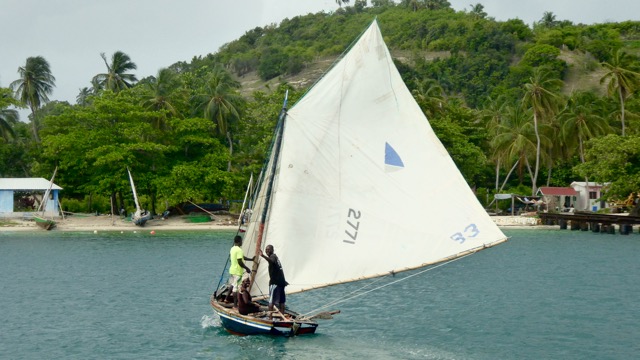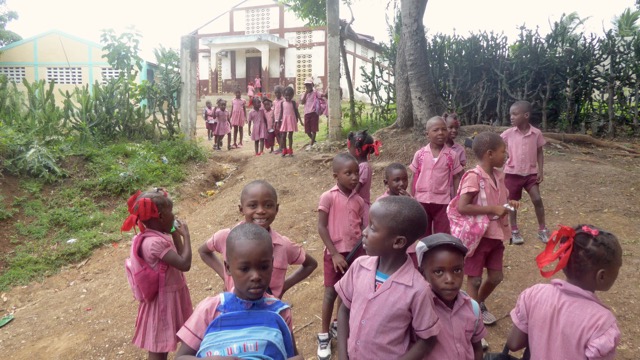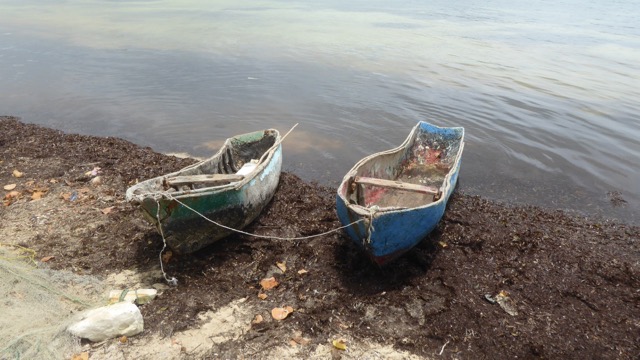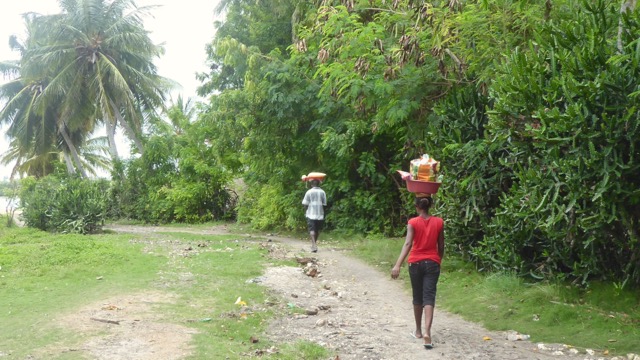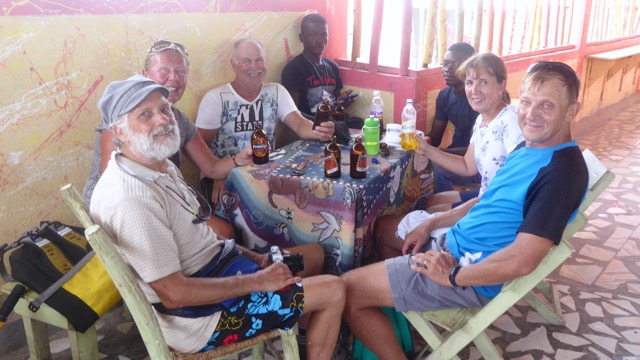Haiti - Ile a Vache

Île-à-Vache, former Spanish name Isla Vaca (Cow Island).
Île-à-Vache was claimed by the Spanish Empire in 1492 as part of Hispaniola, and for the next two centuries it was known by the name Isla Vaca. In 1697 the island of Hispaniola was formally divided between Spain and France.
The island is about 13 km long and 3.2 km wide. The population of the island in 2015 was 14,004 adult inhabitants.
The English pirate captain Henry Morgan (c.1635–1688) frequently used the little island as a base for his operations. Morgan planned and staged many of his largest raids from Isla Vaca, and lost multiple ships in the island's waters which have recently been found and explored by research divers.
In January 1669, Morgan brought ten ships and 800 men to Isla Vaca as a rendezvous point before launching a raid on the Spanish city of Cartagena. Because he and his fellow buccaneers had just captured two French warships, they decided to celebrate in the easily accessible Ferret Bay on the northwest side of the island. They made a fire to roast several pigs and fired the cannons of their flagship as was typical for a buccaneer celebration. In the midst of their drunken revelry, the ship's gunpowder magazine was accidentally lit, triggering an explosion that blew up Morgan's flagship Oxford. In the explosion, Morgan, who was on board the ship, was thrown through the window of his quarters and into the sea. He survived the accident, but the Oxford sank, taking down with it the two captured French warships (which were tied to it) and about 200 of his men.
So it seems that the Caribbean has been the playground for the "nice guys" from Spain, France and England.
Always working in the interest of them selfes on behalf of ... natives, blacks ...
What a wonderful world (Not)!
We are still at anchor outside this small island, a part of Haiti.
